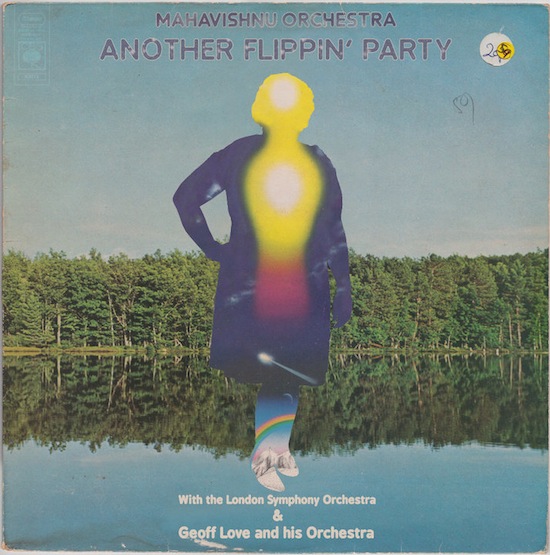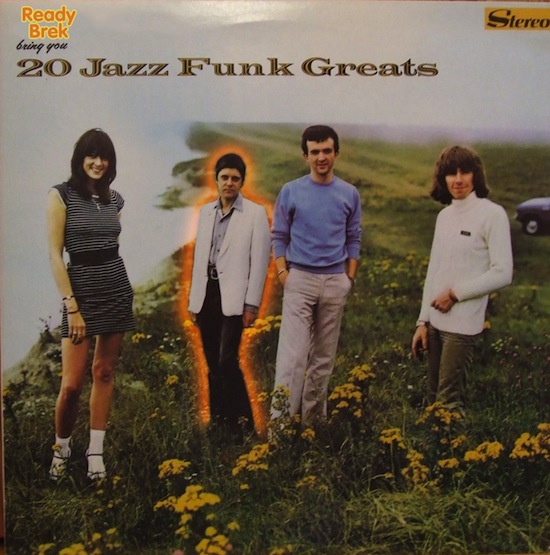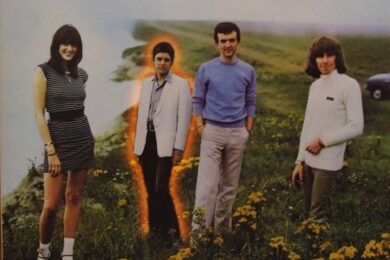All album sleeve art reinterpretations by Sean Reynard
Driving into Margate on the first warm day of the year, initially it’s not only hard to pin down what year it is but what decade even. The A28 deposits us among the sea front arcades and promenade shelters, just past Dreamland, which has been the location of a funfair since 1880. The large amusement park, which contains the Grade II listed Scenic Railway rollercoaster and a large Ferris wheel which can be seen over the seafront facade, has weathered arson attacks, disinterest from tourists, name changes and even temporary closure to become, once more, Dreamland Reimagined. This seaside town they were unable to close down has a hard won if battle-scarred continuity. Things are now, eventually, as they always were.
You can’t judge the popularity of a coastal town on lack of available parking spaces and full to capacity restaurants alone, but they signify enough. Eventually we head into an old school fish & chip shop for lunch. The eggs are fried. The gammon is tasty. The chips are crinkle cut. The condiments come in various packets. The other customers are bikers, all stood outside basking in thick, padded leather trousers and vests drinking mugs of tea and smoking roll-ups next to a mixture of Japanese performance bikes and vintage British machines, with the last parking space taken up by an elderly lady sitting on her mobility scooter eating Cadbury’s chocolate fingers straight from the box.
Next door is a pine and chrome eatery doing a booming trade. Since Zoe Williams of The Telegraph declared the Great British Pizza Company one of the best restaurants in the world, it has proved to be endlessly popular and there is a queue stretching out of the door and onto the street. A seaside knick-knack shop nearby has a chalkboard propped up against the door which reads: “We sell the best rock in Britain. As voted for by some bloke who likes rock.”
We leave and walk up to Cliftonville, passing the first jarring note of modernity, The Turner Contemporary, which opened in 2011. This hard-edged and intransigent Borg cube of art bears no formal relation to the paintings of the Thanet skies and seas, completed by its namesake artist – J.M.W. Turner – some 180 years earlier. And it bears even less relationship to our destination, Cliftonville – sourly nicknamed Clifton Vile by some locals – as we start making our way up Northdown Road.
I count no less than two drug deals during my five minute stroll up the street. Elsewhere there are young men, lying down on low walls, leaning against shop fronts, baking in the sun. Cans of super strength lager. Single skin spliffs. Enough money for a bag of this or a wrap of that. The broken fingernails of dirty hands fleetingly clasp other hands and the exchange takes place. These are the riches of the terminally disenfranchised when it’s the first hot day of the year. Humble people who expect nothing but a warm afternoon’s oblivion. (I post this without judgement. I was doing exactly the same thing at their age. Just further north, with worse weather.)
Alongside the pound shops, mini-marts and newsagents, there is evidence of change on as well though as we pass a whole food shop and a vegetarian Italian cafe that can’t have been there for too long. It seems like a multi-million pound, ostentatious art gallery is not the only battlement on the frontline of change. But we’re not here for quinoa; we’re not here for smack; and we’re not here for modern art; we’re here for vinyl and at number 105 we reach Transmission Records.
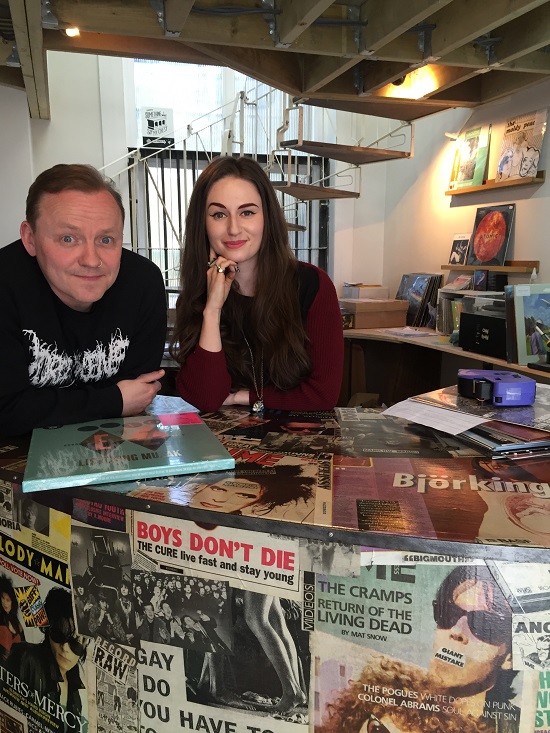
The militantly modern shop opened on March 3 as a “record store, gallery and toy store”. And its newness is brand and spanking, from the colourful, splatter vinyl discs embedded beneath clear resin flooring upwards. Glass cases contain some of the prime exhibits in the toy and memorabilia collection of owners Spencer Hickman and Kim Holladay, relating to everything from the Star Wars franchise to Studio Ghibli. Mint skateboard decks hang from the walls decorated with illustrations from Eraserhead and Misfits artwork. There are more expensive looking items in their own cases such as a large rabbit mask from Donnie Darko and a manically laughing Gremlin in a tweed jacket. Hanging on the wall is original poster artwork from The Thing, Zombie Flesh Eaters and The Creature From The Black Lagoon.
In short Transmission looks as if two people have had their pop cultural aesthetic transplanted faithfully from out of their imaginations into reality, as if by 3D printer. It’s the absolute opposite of the High Fidelity archetype, with no forbidding piles of badly preserved records, guarded by abrasive, serotonin-depleted, dead-eyed cynics who already know how clueless you are before you even enter the shop. It is very unblokey and, as much as I have opinions on these things, what I would consider to be gender neutral. (This is still worth commenting on. It’s less than a year since Haggle Vinyl on Essex Road, London closed. Above the badly preserved, badly stored, badly labelled stock was the yellowing b & w photograph of a heavy-lidded, young, naked woman leaning back against the store’s record shelving, possibly taken by the Robert Crumb lookalike who ran the establishment, possibly not. It was, however, clearly left there as a test for women who wanted to buy music there. I didn’t mourn the shop’s closure, or even notice it was gone until recently.)
That Transmission was made physical by force of will shouldn’t be surprising when you look at Spencer’s CV. He was hanging out as a 13-year-old goth in Birmingham’s Vinyl Dreams in 1984, so working in this field long before he left school. After learning his trade in several record shops (including HMV) and a DVD chain called Silver Screen he ended up getting the manager’s job at the new flagship Rough Trade East ‘megastore’ in 2006, where he stayed ‘til 2011.
He denies that he is a workaholic, so let’s be generous and accept that he just likes to keep busy. While running RTE he set up Death Waltz Records and helped oversee Record Store Day UK long before its waters were excessively muddied by major label involvement. In 2011 he eventually quit to do the label full time and then selling up to Mondo in 2014 (albeit staying on as label manager).
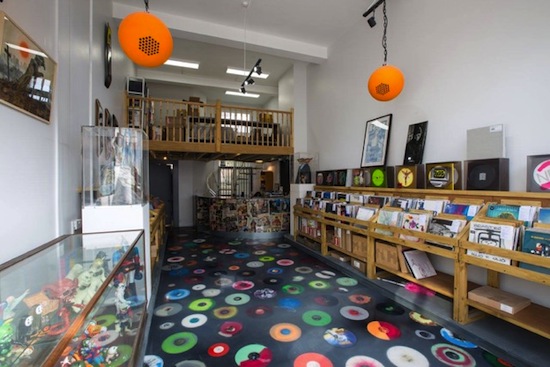
Photograph courtesy of Ollie Harrop
But then, with all this going on, why move to Margate?
He says, “We have the same story as everyone else – London is so expensive. We were renting and were never, ever going to be able to afford to buy. And every year we’d get pushed further and further out. When I moved to London I lived in Maida Vale and by the time I left it was Bow. We came here for a day out on a Sunday and we were like, ‘Yeah, it’s alright.’ We came back two weeks later and we were like, ‘Yeah, let’s do it.’ And we were out of London in month… which is pretty crazy.
“I don’t know why we wanted to start a record shop really because it’s a stupid idea. You don’t make any money on it. Kim had a job doing visual effects in London so if we were going to leave London she had to have a job to do. She’s my girlfriend but also 50/50 business partner.”
Originally Transmission was going to be a soundtrack shop but the couple realised that (The Record Album in Brighton notwithstanding) it was “an insane idea” so their vision became more something that was an extension of their current interests. Now, a month after opening, it is a mix of film/TV/goth/skate memorabilia and toys, soundtracks, Krautrock, post punk, jazz, reggae etc. with an emphasis on good condition Japanese vinyl editions. “It was hammered into me in Rough Trade – you don’t need to stock the shit. Only get the best music in. Transmission reflects our tastes and our record collections at home. The reggae collection has always got Congos’ Heart Of The Congos in. And those are things that tick over every week.”
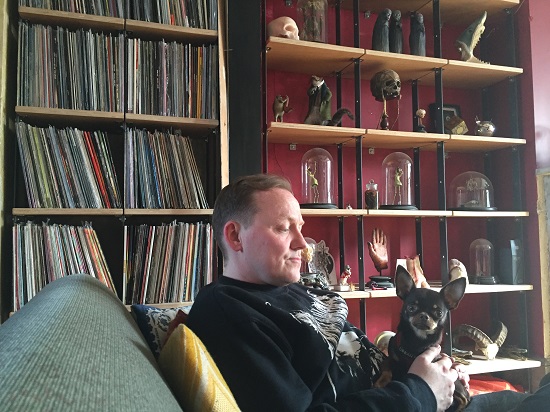
When I ask him what this week’s non-soundtrack best-sellers are, the answer suggests he’s found a rich seam of coastal stoners to reactivate: Explosions In The Sky, Mogwai, Nisennenmondai and Black Mountain. He says that he sold a lot of these albums but on the other hand confirms that it can’t be any other way as margins are so tight they have to sell all stock.
Now, just because Spencer and Kim are pals, and cool people to boot, doesn’t mean I have any right to duck posing the difficult question. I risk being shown the door when I ask, aren’t you just the pilot fish for hipster influx or the gentrification of Margate?
He winces: “Look, I struggle with this because I was pushed out of East London myself; I couldn’t afford to stay there. It’s happening and you cannot escape it. Dom, the guy from the seaweed perfume shop round the corner said when we opened it was like an alien spaceship just landed on Northdown Road. And it’s a signifier of what’s happening in the area.”
When asked how local people feel about it he says, “If you know this area, you’ll know that Cliftonville is one of the most deprived areas in Thanet. People here have been forgotten about. The council have forgotten about them. There are a lot of alcoholics and crackheads who just wander up and down the streets. They come in and we’d never kick anyone out of the shop. They love it. Even though you could argue that what we’re doing is long term bad for these people because if gentrification happens, then those are the people who will get swept out because that tends to be what happens. But we’ve got really involved with the local community. There are grants going towards the regeneration of Cliftonville. So we’re going to the council with a big proposal for what we can all do to make the area better for everyone who lives along here.
“I heard someone calling Margate Shoreditch On Sea and I just wanted to punch them in the head because that’s not where I want to live. I think this area is so crazy though, that all of us can hopefully co-exist together.”
I pick up a very reasonably priced immaculate Japanese pressing of Sudden Impact And The Best Of Dirty Harry by Lalo Schifrin and Jerry Fielding for my girlfriend. Anyway, now that we’ve dispensed with the pleasantries, it’s time for the serious question before I set off home: what the Hell is going on with the Twin Peaks soundtrack reissues?
Death Waltz watchers will know that Spencer got the license to reissue Music From Twin Peaks and Twin Peaks: Fire Walk With Me by Angelo Badalamenti about four years ago but their non-appearance since has become something of a running joke among soundtrack collectors. Spencer is keen to point out that it’s no one’s fault but says the bureaucracy of the major labels just automatically slows everything down. For example the first contract Death Waltz received stipulated the wrong colour of vinyl for the release so it had to be scrapped and the process started all over again. “David Lynch had to approve all of the art and that took a while. The art is by Sam Smith who does a lot of Criterion’s stuff and Jay Shaw has done the outer sleeve which houses the gatefold inside. Angelo has written the sleeve notes. But it doesn’t matter what I post about on social media – the Batman box set for example – people just reply: “Twin Peaks?”
Transmission opens Thursday to Sunday, 12 – 6. Music From Twin Peaks is out on Death Waltz this Autumn

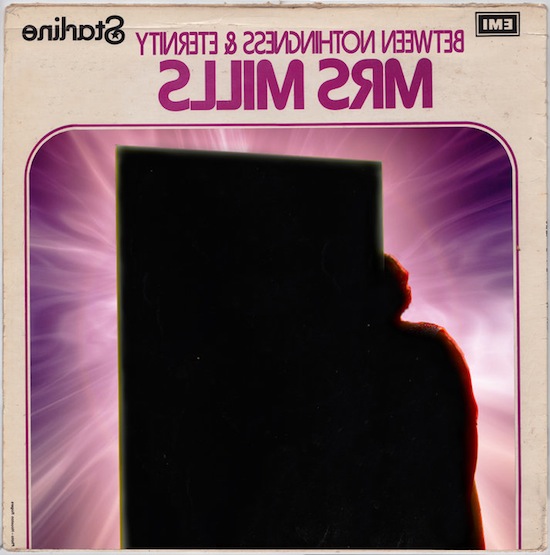
BOX SET OF THE MONTH: Cluster – 1971 – 1981
(Bureau B)
The first thing you notice when you remove the stiff lid from this nine album (and booklet) box set is that Cluster have been subtly repositioned once again. This isn’t the first time that one of the great German groups born in the early 70s has displayed a vaguely Maoist attitude to their own radical countercultural roots. For a long time Kraftwerk have maintained the weird pretense that their career began with a key turning over a car’s ignition during the opening seconds of ‘Autobahn’ in 1974, despite the audible progression through Organisation’s Tone Float to Ralf Und Florian via the two Kraftwerk albums. In the case of Cluster, roots and evolution are now subtly suppressed by design. All nine sleeves have been stripped of their original artwork and given one block of colour on a yellow to maroon scale, featuring just their original 1971 sci-fi suggesting logo. Spread the contents of this box out and it’s like looking at a colour swatch in a paint shop. The first album is no longer framed by the abstract shapes giving way to a zig-zagging arrow pointing to the future; Cluster II no longer features the hand-drawn but deeply resonant yellow star field; Grosses Wasser no longer features the austere line drawing of what could be a diving board or gangplank, leading off into the unknown, and so on. This suggests austere and high-minded sonic experiment from the outset and perhaps denies the more rambunctious roots Kluster had in the counterculture: seven hour acid happenings, unhinged proto-industrial and fluxus. (And in fact, the fact that Sowiesoso no longer has a bucolic photograph of the countryside at Forst as cover art is bad enough, but surely this was a good enough excuse to issue the album with the artwork initially submitted by Nurse With Wound’s Stephen Stapleton only for it to be rejected by Sky Records.)
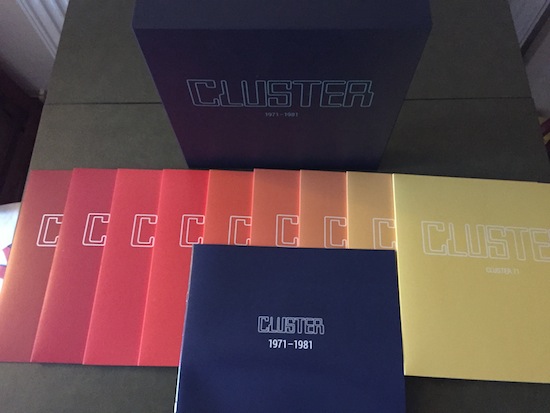
Fortunately the music still speaks for itself. Hans-Joachim Roedelius and Dieter Moebius recorded their eponymous debut (which has since been renamed Cluster 71) with Conny Plank as third member/producer; a role he would occupy until 1978. The album still sings clear and loud today as a work of radical art. Most of the protean form and function of Cluster in the 1970s can be traced back to this explosive record… if you listen closely enough. It is a document of stark electronic pulses, groaning audio generated bass and rumbling organ drones, not to mention Hawaiian guitar and treated cello. Clearly, this is, to all extents and purposes, a live, semi-improvised recording with Plank’s studio/production mastery playing a crucial role. It’s not as abstract as some would believe; it throbs and pulses in an organic manner that suggests a conception of order. And in 1972 on Cluster II, they began to build on this in terms of rhythm and harmony, albeit in a very tentative manner. Zuckerzeit from 1974 is the hit record (although it is in reality two solo EPs masquerading as a joint release). The primitively harassed rhythms were created by the loan of an Elka Drummer One drum machine from Michael Rother, but prompts the question, did the former Kraftwerk guitarist and Neu! founder have a more profound influence on this album? Probably. The trio had just recorded Musik Von Harmonia in 1973 and he stayed on to produce this album with both his melodic and rhythmic influence singing out clearly. The album was recorded in the pastoral settings of Forst, which was by now Cluster’s hometown, but did this move influence their sound away from their more Berlin/Hamburg proto-industrial origins towards a more ambient sound? That depended on who you talked to. When I interviewed the pair in 2008, the younger but more taciturn Moebius said, no, it was purely coincidental while Roedelius disagreed saying yes. Zuckerzeit remains an important album historically and, for example, one can hear its influence on and parallel evolution with the early solo material of Brian Eno. By the time Cluster recorded Sowiesoso in 1976 this relationship had been cemented. Eno had just left Forst after a Harmonia recording session which would eventually see light of day as Tracks And Traces in 1997, when work on the new Cluster album began. The English producer returned to Germany to collaborate on Cluster And Eno (1977) and After The Heat (1978) in quick succession. The former even featured an approximation of a standard 70s band line up with Holger Czukay on bass and Okko Bekker on guitar, with the latter being generally altogether more ‘Eno-esque’. Grosses Wasser (1979) is often painted as a retreat away from “excess” or “ambition” but it still stands as one of their most pop-leaning recordings. However it simply lacks the ambient depth of previous LPs, with only the weird future jazz of the title track really standing out. The absence of Conny Plank was felt keenly on this album and Curiosum in 1981, another oddly muted outing of melancholy synth pop/ambient. The box concludes strongly with a pair of live recordings on Konzerte 1972/1977. The first, is a 22 minute segment of a show recorded at Fabrik, Hamburg, when Cluster gigs would often last for six hours or more. It is the most tantalising of glimpses into just how radical they were. This and the second side, recorded at Festival International De La Science-Fiction in Metz, France provide a much clearer document of how wide their influence has spread over the years from Coil all the way to industrial techno. Other than the complaints about the artwork, this box sounds great and, if you haven’t explored the music of Cluster yet, this makes an excellent introduction; not to mention it being a great companion piece to the Harmonia box set which came out last year.

VINYL REISSUE LABEL OF THE MONTH: Pharaway Sounds
I’d been aware of Pharaway Sounds, a Spanish label specialising in Turkish and Iranian reissues from the 1960s and 1970s for a while but really started listening closely after a bunch of records by Barış Manço turned up on my desk. It was the pictures of him that first grabbed my attention. His face looked like it was carved roughly out of a mountainside, with unruly dark hair, wallpaper paste brush moustache and a melancholy air that suggested keenly remembered trouble from a long time ago. Variously he seemed to be wearing bejewelled, tasselled capes; long, flowing white robes; leopard print jackets; aeroplane collared black silk shirts and other strong sartorial statements which seemed perhaps a few years too young for him and perhaps not even his own preferred choice but still fashion statements that he owned with resignation and grace. Born in 1943 during World War II, Barış means “peace” in English (his brother Savaş was less fortunate, as his name translates as “war”). He was determined to become a famous singer and tried out numerous different styles right collaborating with musicians right across Europe, finally forming his own group The Kurtalan Ekspres in 1972. After initially trying to reach an international audience (ie. releasing English language pop music) they settled on a more Anatolian sound that nevertheless drew in elements of prog and funk, which can be heard across the fantastic Yeni Bir Gün with mournful cocktail bar jazz enlivened with whooping and beeping Korg 700 and Roland SH3A interludes that feel like Close Encounters Of The Third Kind interrupting a romantic daytime soap opera set in a nightclub in 1970s Istanbul. These synths not to mention the Hammond Organ, ARP and Fender Rhodes are played by the album’s secret weapon Kılıç Danışman, whose name translates as “sword advisor”. (The sci-fi references on my part are not entirely wishful thinking on my part by the way. When speaking to a Turkish teen mag in 1978, Barış explained that the instrumental track ‘Çoban Yıldızı’ was inspired by the story of a Venusian spacecraft crash-landing in Turkey and the subsequent love affair the female pilot had with a local shepherd boy.) Another of Pharaway’s Barış Manço reissues is the super low slung Sözüm Meclisten Dışarı from 1981, again with backing from the Kurtalan Ekspres, slinging more disco twisted maqams, demented Oompah Loompah tavern tunes and Anatolian folk giddily toward the underlit dancefloor. The label also has a keen ear for pre-revolutionary Iranian psych, funk and disco on albums such as Sedayeh Del, which contain such old tQ favourites as ‘Helelyos’ by Zia and such rousing stompers as ‘Avazekhan Na Avaz’ by Farrokhazad. Another highlight is the fuzzed up Turkish psych funk of Kamuran Akkor on a self-titled compilation of rare singles. (It should be noted that Pharaway are branching out into modern releases as well with the recent release of Elektro Hafiz’s self-titled debut. Check out my next Middle Eastern and African music column for more on this self-proclaimed “Turkish Elektro Baglama Power” band.)
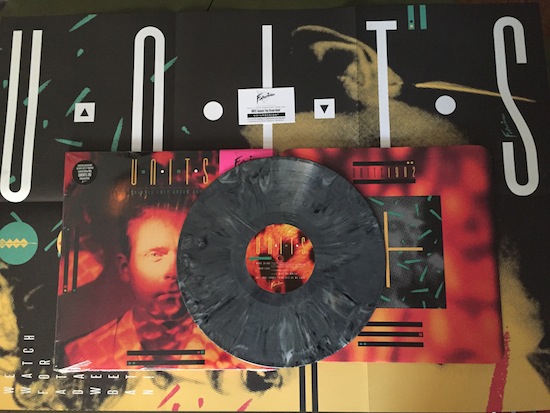
Units – Animals They Dream About
(Futurismo)
I don’t know about you but as the “Aiiieeeeeeeee! We’ve heard it all before! All music ever has been reissued! Music is fucked!” panic recedes in the rear view mirror, outside of the undynamic mainstream tier and a nostalgic, outmoded desire for new, easy to compartmentalise scenes and genres, things are looking pretty good for music fans at the moment. I was watching Guttersnipe, Yeah You and Astoria on Friday night and fretting about the fact that the merch table featured several cassette labels I’d never heard of before. I had some mildly guilty panic about the number of bands I would probably never even get round to listening to through sheer lack of time and an already terrifyingly large listening pile waiting for me back at home. But then I realised that these are good problems to have; having too much music to be able to listen to should not be seen as a negative thing. Likewise, presuming the idea that just because a lot of vinyl reissue labels are moving onto further flung territories or reissuing lost albums, library music and private pressings means we’re scraping the barrel is completely wrong-headed. It presupposes that the music industry “got it right” first time round, which only a fool would believe. Sure, I’d always take a pinch of salt with any record that claims to be a "holy grail for collectors" but every month, one of my favourite labels digs up something really worth owning. Regular readers of the site will know that I’m a fan of San Franciscan synth punks the Units but I still had some trepidations about hearing their never before released second album Animals They Dream About. However I needn’t have worried as it’s great. ‘More Alive’ reveals that by 1982, Units had become much more at home in the studio without completely sanding down and polishing off their rough edges (although this album is notably more synth than punk). ‘More Alike’ is like the sunny Californian take on Grauzone’s ‘Eisbaer’, ‘Bones’ tips the hat to contemporaries and acknowledged influence, Devo, with ‘Straight Lines’ treading roughly in the same area as Tubeway Army. The ‘hit’ this time round is the title track which has got that huge hearted synth pop in ‘82 thing in spades… you know the kind of tune I’m talking about… Fiction Factory’s ‘Feel’s Like Heaven’ or Tears For Fears’ ‘Mad World’. And even the requisite Comateens-style pop rap experiment ‘Get That Funky Thing Off Of My Shoe’ has some killer percussion on it (as do several of the other tracks). The whole thing is a delight. And of course it being a Futurismo release it looks good enough to eat.
